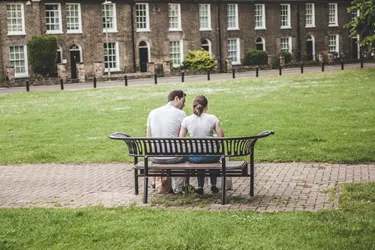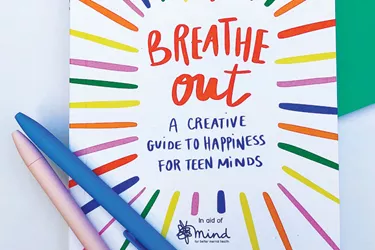Mindfulness and my troublesome time machine
Anthony talks about how mindfulness has helped him cope with depression
Mindfulness exercises are often couched in metaphor. Books by Jon Kabat-Zinn, the chief author of modern mindfulness, will take you to mountains and lakes, forests and rivers.
I’m going to follow the tradition of metaphor and start by telling you about my troublesome time machine.
My troublesome time machine is a bit like Dr Who’s TARDIS. It takes me to times and places I’m not expecting to go, that are upsetting and leave me frightened or depressed.
Instead of Daleks or Cybermen, my futures are filled with catastrophe and ruin, threatening people and dangerous places.
With it, I travel into the past too. The present dematerialises and I rematerialise at times I wish I could forget, re-living the hurt I felt there over and over again.
My troublesome time machine is of course my own mind and those familiar with Cognitive Behavioural Therapy (CBT) will recognise the places it visits as worries brought on by what they call "unhelpful thinking styles."
Has Mindfulness helped me?
I have a skeptical mind and was suspicious of mindfulness when I was first introduced to it. I wasn't just going to accept what I was told. I had to find out for myself and for four years I've been practicing almost daily.
I've found that Mindfulness doesn't stop the troublesome time machine – fighting with it to stop the trips would be a waste of energy. Instead, it's helped me accept who I am. It will still take me places I don't want to go, but I’m no longer a helpless frightened passenger. I can gently guide it back to the present moment when I need to.
Mindfulness hasn’t stopped the fear or pain arising from the places I visit, but I've learnt to be there with those bad feelings, experience them non-judgmentally, without letting them carry me away. I know that they will pass and in the meantime I can be curious about how they flow, their rise and their fall.
Mindfulness doesn’t stop the rushes of anger that come with my illness. Angry outbursts corrode my personal relationships and those closest to me suffer most.
I’ve gone into therapy several times feeling anger is bad, but never got to the bottom of how to manage it. Mindfulness has given me tools – to observe my anger without judgment. Not as good or bad, just as an experience, one of many each day. I don’t get swept away by the emotion; with a wise mind I decide how to respond appropriately.
Mindfulness hasn’t reduced the recurrence of my mental health problem but I would say it speeds my recovery. I can be gentle on myself as I come out of depression – I can accept how I am, illness and all. I realise now that being self-critical only hurts me and prolongs my pain in the present moment.
Mindfulness is a skill. It requires work like any therapy and practice like any skill. It isn’t a shortcut and courses only set the scene, but I find it enjoyable and rewarding. Most of all I find it brings some peace into my life.
My skeptical mind will accept something if it’s supported by somebody I respect. I know mindfulness is helping me because my wife sees it. My wife has supported me to manage my medication for years and often challenges me with “Have you had your meds?” These days she also challenges me with “Have you done your meditation?”
She keeps me right and knows mindfulness does too. I hope it can work for others reading this blog.


Information and support
When you’re living with a mental health problem, or supporting someone who is, having access to the right information - about a condition, treatment options, or practical issues - is vital. Visit our information pages to find out more.
Share your story with others
Blogs and stories can show that people with mental health problems are cared about, understood and listened to. We can use it to challenge the status quo and change attitudes.

















